According to the roadmap, the new commune-level government will start operating from July 1, and the new provincial-level government will operate after August 30. This can be seen as a total reform of the government apparatus at all levels. The scale of the workload is very large and the implementation time is increasingly short. This is both a challenge and an opportunity for the application of digital technology and artificial intelligence (AI) in the comprehensive national digital transformation.
First of all, the consolidation of the databases of the merged localities and the editing of information on place names. In particular, the editing of new place name information is a huge amount of work, because it must be carried out on all types of databases from local, specialized to ministerial and national levels. This work must apply AI, and at the same time, there must be measures using AI to cross-check to ensure the accuracy of the database.
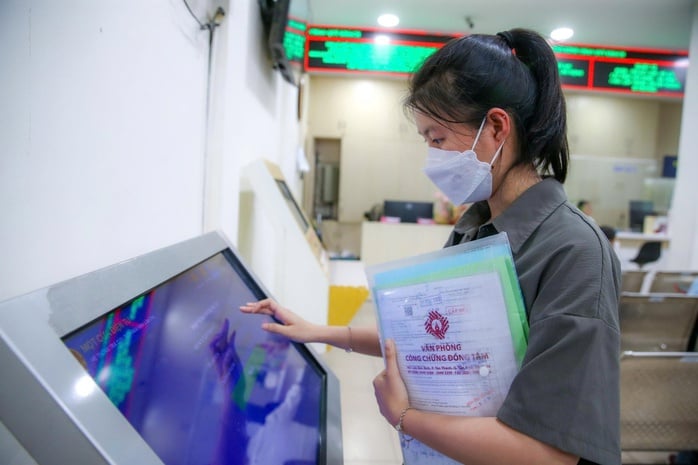
People check the progress of their application online at the People's Committee of Binh Tan District. Photo: HOANG TRIEU
The government, from the central level, needs to develop AI tools to help people look up place name information. For example, "What is the new address and place name?" or vice versa, "What is the new address and place name that has been changed from the old address and place name?"
After the merger, the wards, communes, provinces and cities will have a 2-3 times larger area, or even larger. This will affect the administrative management of both the state and the people. For example, if a resident in the Tay Ninh border area wants to go to the provincial People's Committee headquarters to do administrative procedures, instead of going to Tay Ninh city as before, he or she now has to go to Tan An city, Long An province - where the new Tay Ninh provincial People's Committee headquarters will be located. This is the time when digital government and digital citizens are needed.
On May 22, 2025, the Prime Minister signed Official Dispatch No. 69/CD-TTg, requiring to ensure that 100% of administrative procedures related to enterprises are performed online, smoothly, seamlessly, effectively, transparently, minimizing paperwork; organizing the implementation of administrative procedures regardless of administrative boundaries within the provincial level, to be completed in 2025.
Administrative procedures also need to be accelerated to be put on the online platform and upgraded as soon as possible to the full-process level. Doing this will help people perform administrative procedures right on the internet. In Ho Chi Minh City, currently, of the total 1,991 administrative procedures that have been put online, more than half have reached the full-process level and according to the plan, this rate will be increased to 77% by December.
Source: https://nld.com.vn/dua-thu-tuc-hanh-chinh-len-online-196250524211106316.htm



![[Photo] Funeral of former President Tran Duc Luong in Quang Ngai](https://vphoto.vietnam.vn/thumb/1200x675/vietnam/resource/IMAGE/2025/5/25/ccf19a3d8ea7450bb9afe81731b80995)
![[Photo] Welcoming ceremony for Prime Minister Pham Minh Chinh and his wife on an official visit to Malaysia](https://vphoto.vietnam.vn/thumb/1200x675/vietnam/resource/IMAGE/2025/5/25/dc30203c3ae24da3990266ec3b29bb2d)
![[Photo] The coffin of former President Tran Duc Luong arrives in Quang Ngai](https://vphoto.vietnam.vn/thumb/1200x675/vietnam/resource/IMAGE/2025/5/25/1f1aca0d92ab47deae07934e749b35e6)








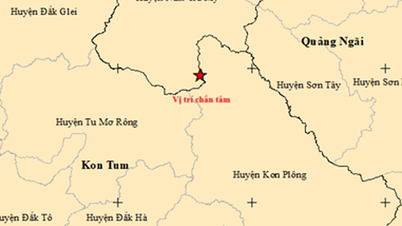





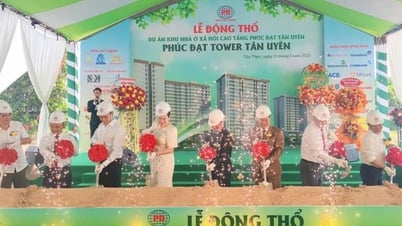


































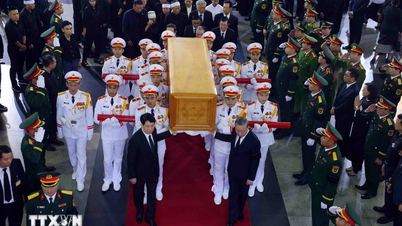
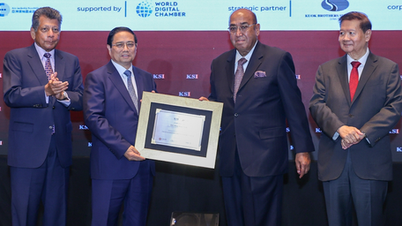

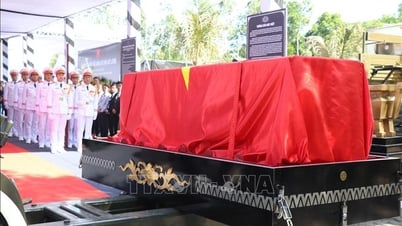
































Comment (0)